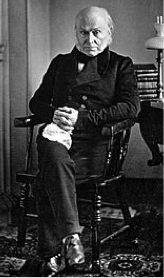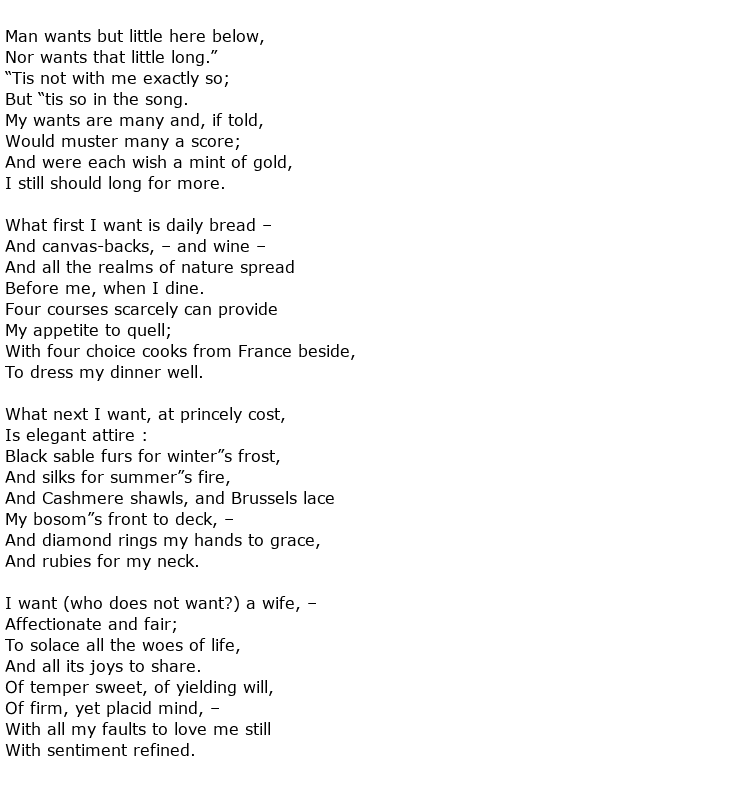 John Quincy Adams was an American poet who, by his own admission, would like to have been a better one, as evidenced by the following statement:
John Quincy Adams was an American poet who, by his own admission, would like to have been a better one, as evidenced by the following statement:

It is very likely though that his poetry only received the attention that it did because of who this great man was. Between the years 1825 and 1829 John Quincy Adams served as the 6th President of the United States. One could quote, as an example of the above, the epic poem Dermot MacMorrogh or the Conquest of Ireland. It was a worthy piece of work, no doubt, but critics gave it poor reviews and many said that it would have received no attention at all but for the addition of four important words alongside the title, these being “by John Quincy Adams”.
He was born on the 11th July 1767 in the Massachusetts town of Braintree, later renamed Quincy. His parents felt that there was no need to send their son to school and he received private tuition instead. He was an avid reader and writer and, at the age of 12, began writing a diary and he would slavishly continue with this task for the rest of his life. It ran to some fifty volumes and is accepted by historians as a definitive account of American life from shortly after Independence up to the mid-19th century.
The young Adams was fortunate that he was able to accompany his diplomat father on overseas trips and these European journeys were a source of great education and inspiration to him. His travels took him from France to Scandinavia and Russia and he managed to become fluent in a number of European languages at the same time. In addition, with his father’s help, he studied the classics and by the time he entered Harvard he was well versed in the works of Aristotle, Virgil and others. By the age of 23 he had supplemented his Bachelors’ degree with a Masters and he went on to practice law in Boston.
Adams was a keen writer of poetry at this time and his work consisted mostly of religious-themed pieces. It was probably never his ambition to be a serious writer though and, in fact, it was not until after his death that a collection of his verses was published (in 1848) called Poems of Religion and Society. This collection attracted favourable comments like “some of his hymns are among the finest devotional lyrics in our language.” There is a poem from this collection though that is of a less secular nature but sums up the aspirations of most people at that time, and perhaps even today. The Wants of Man was a fine poem which was quoted much later by Ralph Waldo Emerson as one of his favourite poems. Here are the first four verses:

John Quincy Adams will best be remembered, of course, as a great American statesman who, with former President John Adams as his father, was probably destined for high office from birth. He was a reforming President who presided over many innovative technical and social advancements in society. Even after leaving office he never let up and worked hard right up to the age of 78 when a stroke left him partially paralysed. Amazingly he recovered and returned to work in Congress. However, on the 21st February 1848 he collapsed during a heated debate, having suffered a massive cerebral haemorrhage. He died two days later, aged 80.

